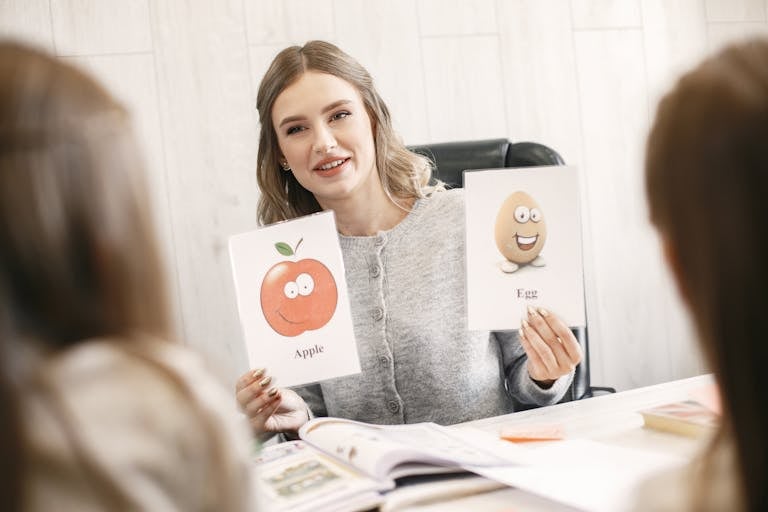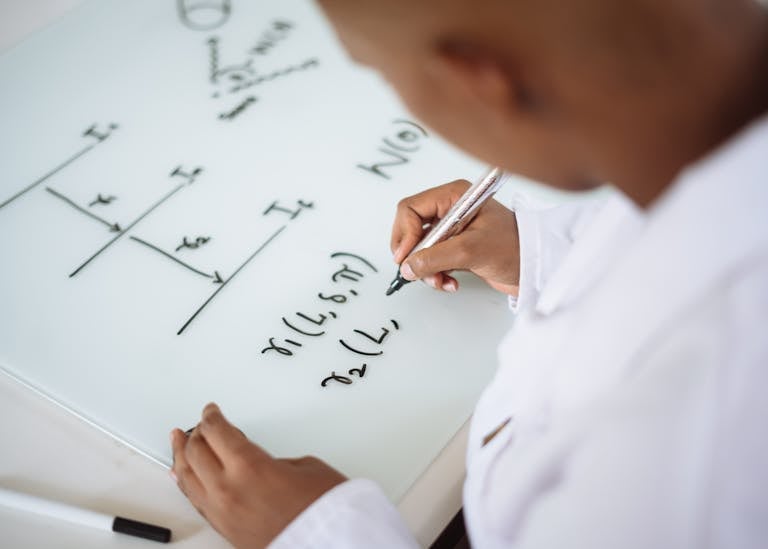Let’s be honest: learning math makes a lot of people feel stupid. You try a problem over and over again but still can’t get the right answer. You look at a complex equation and think “what does this even mean?” Meanwhile, Sally over in the corner is raising her hand to answer every question and gets an A on every test.
So maybe you’ve started to think “I’m just not a math person.” But what if the problem isn’t you, but the way you’ve been taught to learn math?
What Students Get Wrong
Most students treat math like a plug-and-play game: if a problem looks like this, I do that. They spend hours practicing question after question, memorizing the steps and formulas but never looking deeper.
Surprisingly, the real problem here isn’t the approach. It is using it as a one-size-fits-all solution for everything in math, and in doing so neglecting the most important parts that help math make sense.
This is why so many students…
- are confident doing homework questions but panic on the test.
- are working hard but still feel like they’re falling behind.
- think they understand it in class, but blank when they try it themselves.
- feel like math makes sense one day and then falls apart the next.
So how can you go from “I’m not a math person” to “I can do this”? By matching how to learn with what you’re trying to learn.
How to Learn Math: The 3 Core Parts of Math
Learning something new is about breaking it down into its parts and then using the right strategies to master each one. In math, there are 3 parts to master: calculation skills, conceptual knowledge, and reasoning skills.
Oftentimes, students focus on just one element, but that’s like trying to finish a puzzle with only half the pieces. It’s incomplete, and really hard to see the full picture. But when you develop all 3 together that’s when math starts to make sense.
1. Calculation Skills
What is it? Calculation skills are the mechanical side of math: how to add, subtract, multiply, divide, solve equations and apply rules like BEDMAS or exponent laws.
Why does it matter? These are the basic tools that let you actually do math. If you can’t calculate accurately, it’s like trying to play piano without knowing which keys make which sound.
How to master it?
- Learn and memorize laws, rules, and step-by-step methods (yes, memorization is not all bad!)
- Practice until it’s second nature, just like you would learn how to shoot a basketball.
- But once you got the hang of it? Move on. Don’t waste time solving too many easy questions.
2. Conceptual Knowledge
What is it? Conceptual knowledge means understanding why things work. What is a function? Why do angles of a triangle add to 180 degrees? What does it mean to solve for x?
Why does it matter? Conceptual knowledge is what helps math feel logical instead of mysterious. When you know the underlying reasons behind the steps, you don’t have to memorize everything, you can rebuild it from understanding. It also gives you the flexibility to adapt when problems change or when formulas aren’t handed to you.
How to master it?
- Ask questions like “why does this work?” or “what does this represent?”
- Use visuals, models, or metaphors (yes, even stick figures help).
- Explain it to someone else: if you can teach it, you understand it.
3. Reasoning Skills
What is it? Reasoning is the ability to tackle unfamiliar problems. It’s about logic, strategy, and making connections between different math topics.
Why does it matter? This is where math becomes powerful (and a little fun!). When you’re faced with a problem you’ve never seen before, reasoning helps you figure out what to do. It’s how you take the concepts and skills you’ve learned and use them creatively.
How to master it?
- Practice asking yourself these 3 questions: What information do I have? What information am I missing? How do I find the missing pieces with the tools that I have?
- Reflect on your process. Ask yourself: what worked, what didn’t and why?
Why Math Matters
At some point you’ve probably asked: “When am I ever going to use this?”
Here’s the real answer no one will tell you: you won’t use every concept you learn in your day-to-day life. But math is amazing brain training because it teaches you how to solve problems in a clear, logical and creative way. The better you get at math, the better you get at solving problems (big or small) in real life.
Final Words
You don’t need to be a math person to be good at math. You just need the right strategies, matched to the right parts of what you’re trying to learn.
Focus on all three pieces: build you calculation skills, deepen your conceptual understanding, and practice your reasoning abilities. That’s how you’ll build real confidence (and maybe even start to enjoy math!).
Remember: it’s not about being born with talent. It’s about building the toolkit to learn it well.




